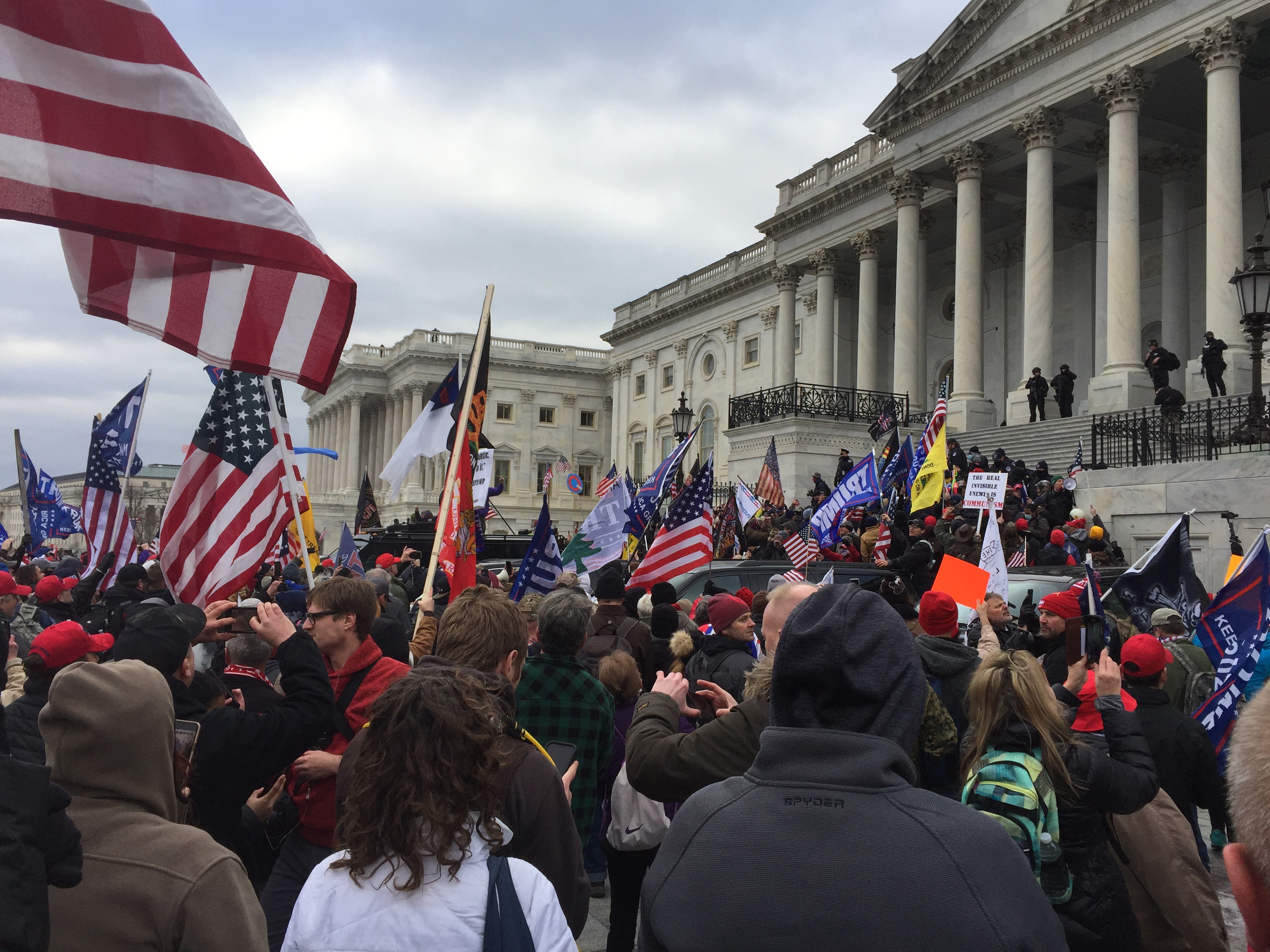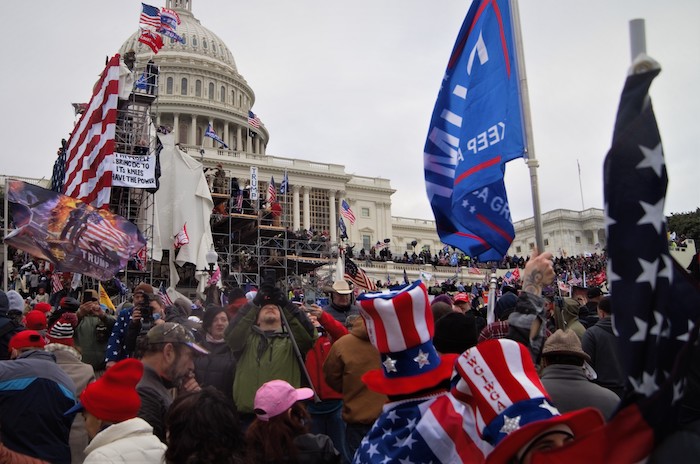Almost three years since a mob of Donald Trump supporters stormed the U.S. Capitol building, one expert at the George Washington University says the same rhetoric that incited violence on January 6, 2021, continues today, often elevated by elected officials and presidential candidates and which can embolden extremists.
Jon Lewis is a research fellow at the GW Program on Extremism. He studies domestic violent extremism and homegrown violent extremism, with a specialization in the evolution of white supremacist and anti-government movements in the United States and federal responses to the threat. Lewis is the co-author of two major Program reports on the events of January 6th, as well as numerous long form publications on the Proud Boys and Oath Keepers and their role in the events of January 6th.
In addition, Lewis manages the Program's Capitol Hill Siege database, which is a public tracker for all federal cases stemming from J6 participation.
“As we mark 36 months since the attack on the U.S. Capitol, the work to investigate and prosecute those responsible continues. As DOJ and FBI slowly identify and arrest the foot soldiers of the would-be insurrection, the same rhetoric and narratives which incited violence on that day continue to spread across the right-wing ecosystem. Driven by conspiracies rooted in antisemitism and racism, right-wing "culture war" proponents simultaneously downplay the seriousness of the attack while celebrating the 'patriotism' of those who have been arrested for their criminal conduct,” Lewis says.
“The mob on January 6, much like the Proud Boys and Oath Keepers, are related symptoms of the broader disease. As we enter 2024 and another anniversary of January 6, dehumanizing and fascist rhetoric remains a part of mainstream political discourse, as antisemitic narratives like the Great Replacement theory are normalized and promoted by elected officials and presidential candidates. This web of conspiracies connected by a shared belief that a "deep state" run by Jews is conspiring to replace the white population in the country, in turn, allows for grievances like a stolen election to mobilize ideologically disparate extremists in the name of the unifying cause.”
If you would like to speak to Jon Lewis, please contact GW Senior Media Relations Specialist Cate Douglass at cdouglass gwu [dot] edu (cdouglass[at]gwu[dot]edu).
gwu [dot] edu (cdouglass[at]gwu[dot]edu).
-GW-





